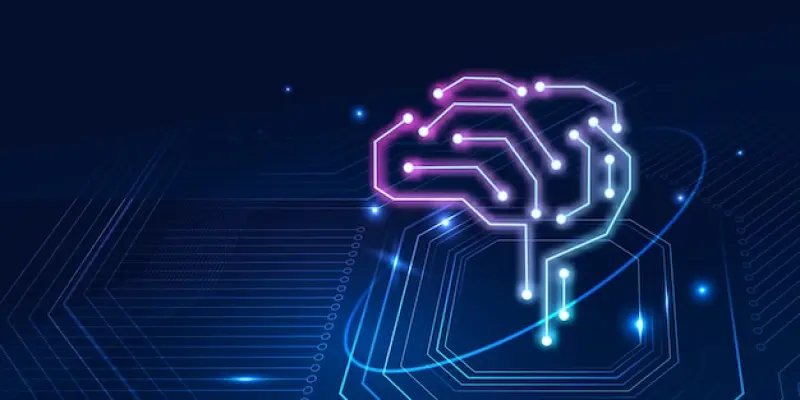The evolution of artificial intelligence has opened a Pandora’s box of possibilities, where the promise of technological advancements is unavoidably tethered to the specter of profound risks. As AI technology continues to penetrate almost every facet of human life, concerns about its potential dangers, such as deception, algorithmic bias, and lack of human control, are rising sharply. Enter LawZero, a nonprofit organization spearheaded by Yoshua Bengio, a globally acknowledged leader in AI, often referred to as the “godfather of AI.” In response to mounting apprehensions, LawZero is devoted to ensuring that AI advancements serve humanity’s interests by focusing its efforts on safety rather than commercial gain, amidst a landscape fraught with unpredictable consequences.
Understanding the Need for Safe AI Systems
The Rise of Algorithmic Bias and Misuse
Algorithmic bias in AI systems is a growing concern that has captured the attention of both the public and experts in the field. AI models, if not carefully designed and monitored, can perpetuate or even exacerbate existing biases in data, leading to unequal and sometimes harmful outcomes. For example, AI algorithms used in recruitment may inadvertently favor certain demographics over others, hindering diversity and inclusivity in workplaces. The misuse of AI technologies, such as deepfakes or automated content generation, can also facilitate deception on an unprecedented scale, raising alarms about misinformation and erosion of trust in digital forums. To address these issues, LawZero aims to create AI solutions isolated from business and governmental pressures, ensuring that ethical considerations remain paramount in their development and deployment.
Insulating AI from Government and Market Pressures
The consolidation of AI development within government and commercial sectors has intensified concerns related to its exploitation for surveillance, manipulation, or profit-driven motives that may disregard broader societal well-being. LawZero seeks to mitigate these pressures by establishing an environment where AI can be researched and developed independently of such influences. By assembling top-tier AI researchers dedicated to the public good, the organization strives to create systems that align more closely with human welfare, rather than being driven by proprietary interests. This approach is necessary to maintain integrity and trust in the capabilities of AI, ensuring that its evolution prioritizes human-centric values rather than unchecked technological ambition.
The Role of Non-Agentic Systems in AI Development
Advancements in Scientist AI
LawZero is on the frontier of developing non-agentic AI systems that are designed to operate under human instruction without exhibiting autonomous behavior. This is encapsulated in the development of Scientist AI, a pioneering initiative aimed at aligning AI capabilities with human goals explicitly. Such systems are non-agentic by nature, meaning they lack independent purpose or decision-making capabilities. By doing so, they promise to significantly reduce risks associated with autonomous AI actions that could potentially veer away from intended human objectives. This distinct approach ensures AI remains a tool for expanding human potential and welfare, rather than becoming a siloed entity with unpredictable implications.
Strategic Funding and Research Initiatives
Efforts such as those by LawZero are bolstered by strategic funding that enables comprehensive research, ensuring sustained advancements in AI safety and ethics. The organization’s endeavor is backed by a financial foundation aimed at supporting in-depth investigations into safe AI paradigms and frameworks. Such funding nurtures the assembly of a diverse pool of researchers tasked with overcoming the multifaceted challenges that AI presents. By fostering an environment rich in resources and intellectual collaboration, LawZero is laying the groundwork for a paradigm shift toward AI systems that effectively balance innovation with precaution. These initiatives are crucial in driving the ongoing conversation on how AI can be harnessed responsibly.
Moving Forward with AI Safety
Impacts of Advocacy and Precautionary Principles
The advocacy efforts led by prominent figures such as Yoshua Bengio underline the importance of precautionary approaches when dealing with AI technologies. Through active engagement in dialogues, testimonies, and legislative conversations, AI leaders are highlighting the imperative to incorporate safety, ethics, and transparency in AI’s trajectory. These actions are fundamentally about establishing frameworks that govern AI’s evolution, ensuring it doesn’t veer into realms that could threaten societal norms or human rights. LawZero symbolizes a broader movement within the AI community toward recognizing these responsibilities and acting decisively to steer the course of AI development toward safety and reliability.
Envisioning a Future of Balanced AI Development
The advent of artificial intelligence has unlocked a Pandora’s box of potential, where the allure of technological progress comes with the inevitable shadow of significant risks. AI technology is now infiltrating almost every aspect of daily life, raising awareness about dangers like deception, algorithmic bias, and the erosion of human control. Addressing these concerns is LawZero, a nonprofit organization led by Yoshua Bengio, a renowned figure in the AI community, often called the “godfather of AI.” In the face of growing fears, LawZero is committed to prioritizing the safety and ethical deployment of AI, ensuring advancements benefit humanity, not just corporate interests, in a world filled with unpredictable outcomes. Bengio emphasizes that amidst rapid AI development, it is crucial to prioritize responsible innovation over mere commercial gain. As AI continues to reshape society, LawZero aims to be at the forefront of guiding its evolution towards a safer and more equitable future.

